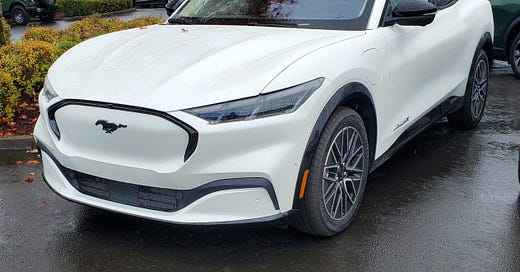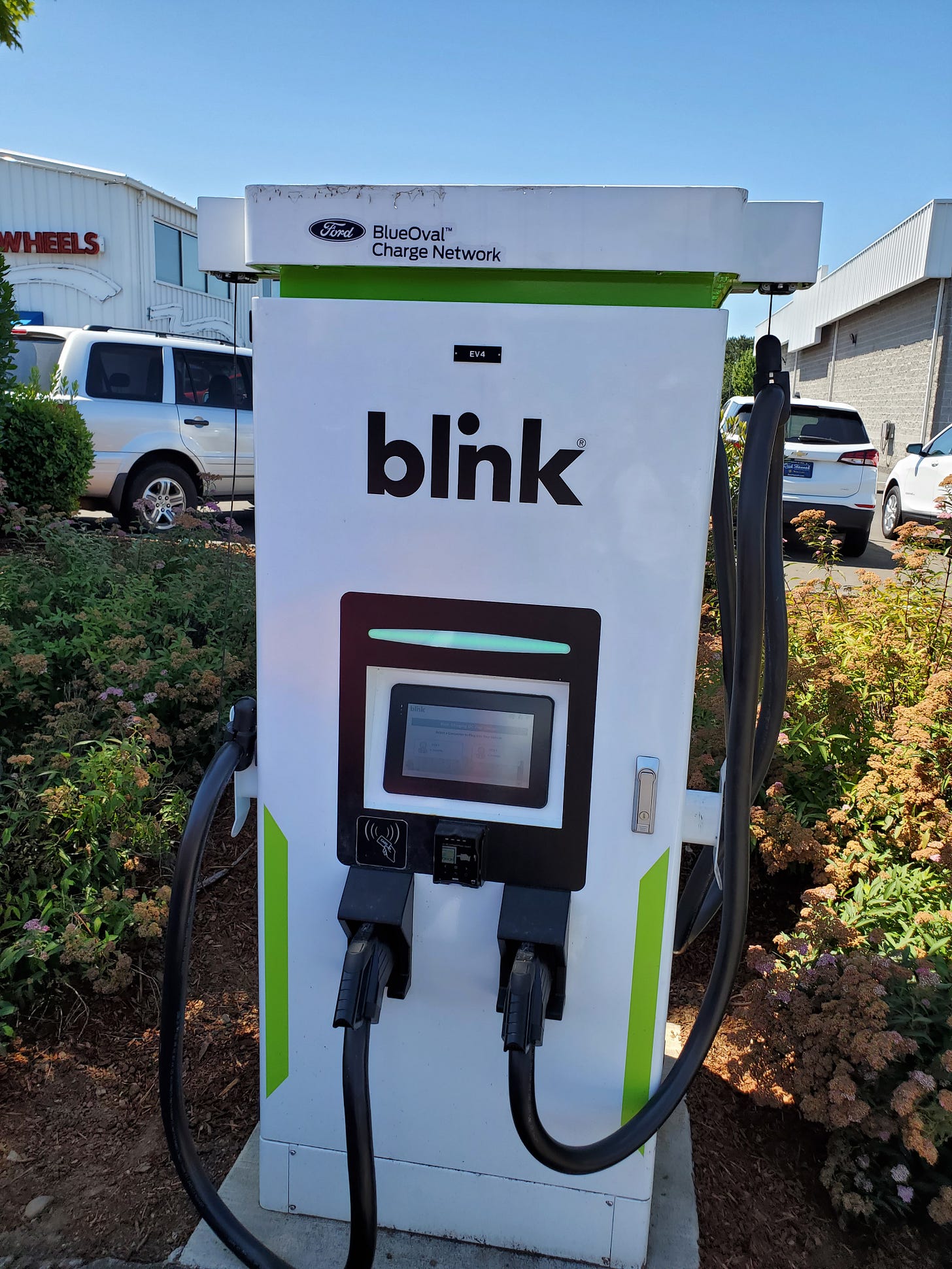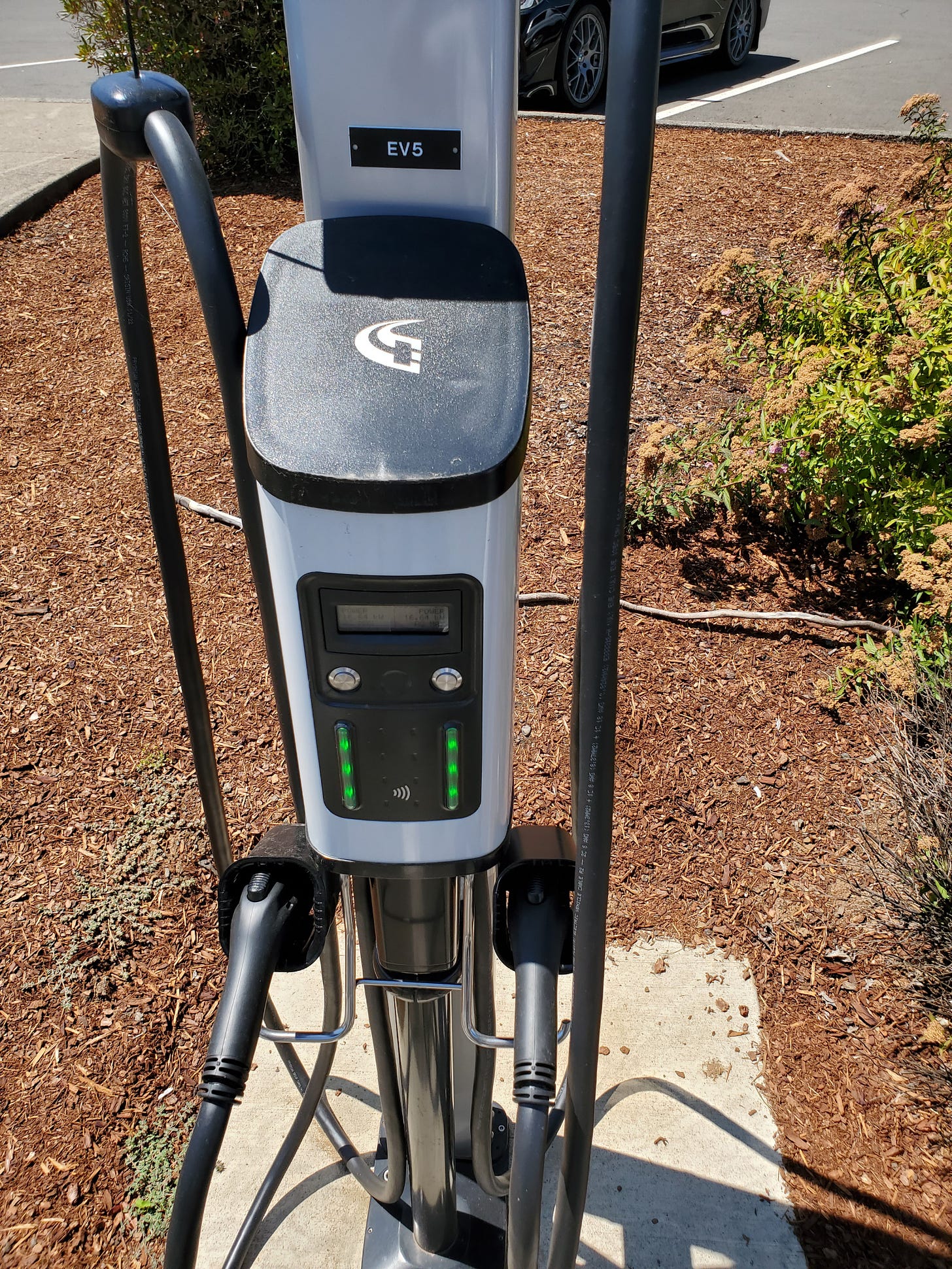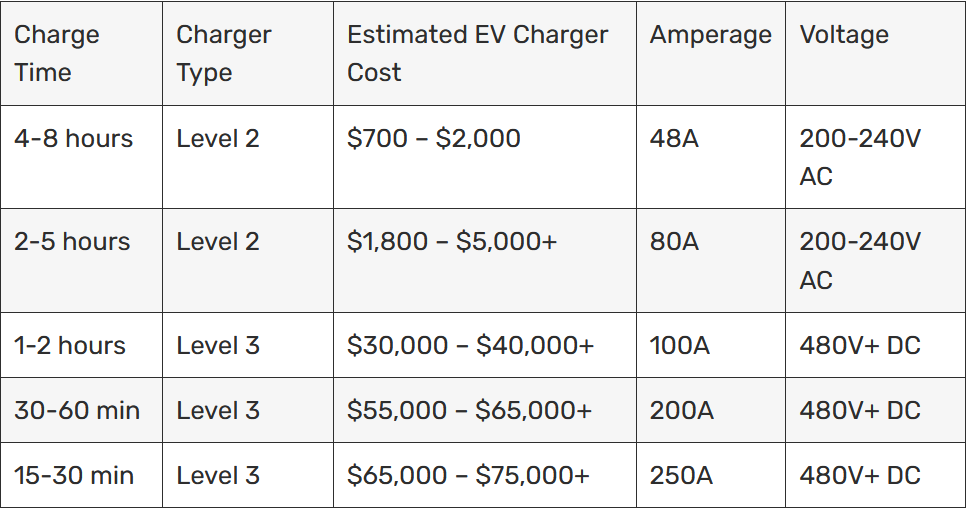Ford’s EV losses climb but overall profits are up - 7News Miami and CNN Their losses come from EVs; their profits come from good ol’ internal combustion engines (ICEs)
-Also today - cases of EV battery fires and a deadly explosion
first, from Energy Security and Freedom, 7/20/24 - an article about GM and Ford
“Ford recorded a $1.3 billion operating loss for its EV and software division in the first quarter of 2024. Executives expect this section of the company to sustain a pretax loss of between $5 billion and $5.5 billion for the year. While Ford continues to develop affordable and smaller electric vehicles by a team in California, the company in the near term is focusing on boosting sales of hybrid vehicles, which are preferred by many consumers, instead of adopting fully battery-powered cars. In the near term, hybrids are a top priority for Ford, and the auto company plans to increase hybrid sales by 40 percent this year and quadruple them in the coming years.”
I stopped by our local Ford dealer and interviewed one of their people on battery electric vehicles. I told him I was confused. One source tells me that Ford’s EV sales are up, 2nd only to Tesla, and another source tells me they’re losing $130,000 dollars on every EV they sell. He agreed that both statements were true. His explanation was that posted loss figures include not just operating cost, but also the factory setup costs. He is optimistic that the fixed setup costs will become less and less important over time, and when their EV sales get into the millions, they will be profitable. That’s my understanding of what he said; not an exact quote.
He said that not all Ford dealers are on board for selling EVs, but his dealership has invested a lot of money for inventory and just recently, $50,000 for extra electric power infrastructure to handle 6 on-site charging stations, which cost an additional “fortune”, - his word – could not give me an exact figure.
The charging stations are from Blinkcharging.com. Two are heavy duty, 120 KW “fast chargers”and 4 are smaller, ‘level 2’, 19 KW stations. Chris, their salesman told me the small ones cost $719 (not including installation). From the manufacturer’s website, I see these models require 4 to 8 hours for a full charge. (Each charger has two cables. If only one is being used, charge time is 4 hrs. If both cables are used at once, charge time for each vehicle would be 8 hrs.) The heavy duty ones are ‘level 3’, 120 KW ‘fast chargers’, and charge time is 15-30 minutes. The cost for these top ‘level 3’ chargers is $75,000 each, plus installation.
Chart estimates from wattlogic.com:
I also learned that the ratio of sales are about 20 to 1 for ICE compared to EV, and hybrid EV sales volume is higher than all-electric EVs.
While working on this post, on Monday 7/22/24 I saw news that Ford has decided to change its plans for its Oakville assembly plant in Canada. Now, instead of building more EV F-150 ‘Lightning’ trucks as originally planned, which apparently are not selling well, they will use the plant to produce the conventional gas and diesel powered F-series ‘super duty’ pickups, which are very popular.
I also stopped by and had a talk with my local insurance man. He said that about 95% of his insureds, most of whom live in a rural area near Portland Oregon, are driving conventional gas cars and trucks. He told me that insuring EVs is more expensive than conventional cars.
One surprising thing I learned is that his company, as well as Geico and probably some others, have decided not to insure Tesla’s cybertruck. Not at any price. He thought the reason was mainly that they are so expensive to repair.
Parts are expensive and can be hard to get, specially trained labor is expensive and not all dealers even do EV repairs. And if it’s too expensive to repair, then insurance companies have to total the car and replace it, and of course the more expensive the car, the higher the cost of replacement. Insurers of EVs tend to total an EV if there is any chance at all that the battery might have been damaged, even slightly, because that greatly increases the risk of battery fire.
That brought up the local Ford Dealer. The previous dealer, Suburban Ford, sold out to another dealer. My insurance man thought that Suburban Ford sold out because they had decided not to commit to the very large investment demanded by Ford - to bring EVs into inventory and to set up and train specialized technicians.
I’m sure that Ford’s lowering of prices to try to increase sales also means lower profit margins for the dealers. (I’m not sure if the new dealer’s investment in 6 charging stations was optional or if that too is part of Ford’s requirements.) I don’t have more recent figures, but last year I read that about 50% of Ford’s dealers were opting out of the EV program.
We talked about some of the risks of all EVs that concern insurance companies. They have fast pickup, 0-60 in no time; faster than any gas vehicle. That may be fun for the driver, but it’s dangerous for pedestrians…
…plus the silence of an electric motor may be nice in some ways, but it’s another risk to pedestrians who can’t hear them coming. I think somebody is going to get killed sooner or later.
…He didn’t seem directly concerned about fires, since they’re not too common, although he agreed that the risk is there, especially after any kind of an accident, because the battery could be knowingly or unknowingly compromised and therefore at higher risk of spontaneously bursting into flames that are notoriously hard to put out.
He personally thought that hybrids make a lot more sense than all-electric. He has a relative in Alaska that has a Tesla, but who admits that he’d be afraid to take it out in one of their snowstorms, because of the danger of getting stranded or blocked on the road. He would have to keep the heater going to keep from freezing, which would run down the battery. Then, he wonders, could he even get home after the road was cleared, or would he be ‘dead in the water’ with no remaining battery power?
In regard to the risk of fires, I made one more stop - the local fire department. I don’t follow the network news much at all, but thought if there had been any EV fires in my county I probably would have heard about it. Wrong. The fireman that I talked to told me that there had been a significant number of EV fires after accidents, although not more than gas cars. He said they had no special training for EV fires; they just douse them with tons of water for hours.
Later I found a Portland news item from 3/6/24 about an electric bike battery fire in a room on the 7th floor of the Portland Holiday Inn.
“"It's something that's all too frequent,” Portland Fire Department Deputy Chief Chad Johnston said. “We are starting to see more, and we just did a department-wide training to try and help inform our employees on the dangers, and how to combat it, and how to deal with it..”
Then I found a report about a semi-truck carrying lithium batteries catching fire and shutting down hwy I-90 in Washington State on 7/9/24.
notice the gas masks - the fumes are toxic
“Today, a semi-trailer carrying lithium batteries caught fire and is continuing to cause significant traffic delays. Trooper Rick Johnson of the Washington State Patrol says the incident occurred west of Highpoint and is blocking the right two westbound lanes of I-90. Emergency responders from Eastside Fire were quickly on the scene to manage the blaze, which involves lithium batteries known for their potential to ignite and cause long and intense fires.
Trooper Johnson provided updates via social media on X, initially reporting the fire and lane closures at 9:33 AM today (July 9, 2024). Over an hour later at 10:39 AM, he posted again saying the closure would be prolonged as crews work to safely offload the lithium battery cargo that is on fire and emphasized the delicate process required.
Lithium-ion batteries, increasingly utilized in almost everything electric today, present unique firefighting challenges once they catch fire. The intense fires can start from mechanical damage, electrical faults, or even just overheating within the battery cells. These incidents often lead to thermal runaway, where temperatures soar rapidly, and increase the fire's intensity.
The hazards of lithium battery fires extend beyond the immediate fire risks, however. Lithium-ion battery fires emit many hazardous chemicals such as hydrogen fluoride and hydrogen chloride, along with toxic metals like cobalt and nickel. These contaminants pose risks to firefighters, people nearby, and the environment, taking specialized approaches to firefighting and cleanup once they happen.”
I hope our local firefighters soon are able to get some training so they will not be hurt when fighting these EV battery fires.
8/2/24 - from Energy Security and Freedom - a truly tragic EV bike battery explosion
A man carried a battery from an EV bike into an elevator. It caught fire and exploded. He was trapped in the elevator and did not survive.
EV battery fires and explosions are very rare, but when they do occur, they are quite terrible.










A little anecdotal confirmation of hybrids' efficacy: It must be 10 years ago that we needed a new car, and made a decision based on reliability and fuel economy as well as cash-affordability (we only once, in about 2008, borrowed for a [used, high mpg ICE] car, which paid for itself in fuel savings over about six months). We bought a used 2007 Prius hybrid, battery had recently been replaced. We couldn't find any comparable American brand cars, and we still get just over 48 mpg. Sorry, but American automakers have for years been making stupid strategic decisions. US government policy toward car manufacturing has long been equally foolish.
Thanks, Al! In a world where it is difficult to distinguish the truth from sensationalism or biased reporting, it is very refreshing to read your balanced, researched, and fact-based statements. You are what I always thought journalism and news reporting ought to be.
It helps, of course, that I know you and trust in your integrity to report and not mislead.
On the topic of EV vs hybrid vs ICE, we've talked before about my Prius and my choice to buy hybrid. In the end, the all-in operational cost of a hybrid over an ICE was - for me, at least - pretty much even. The operating cost of the hybrid was less than the ICE, but there would eventually be a battery replacement cost, which would essentially even out the balance sheet. In the end, I traded in the hybrid after about 5 years and bought a gas-powered pickup truck. Someone else will have to pay the battery replacement cost in another five or so years when it's needed, so I think I came out ahead.